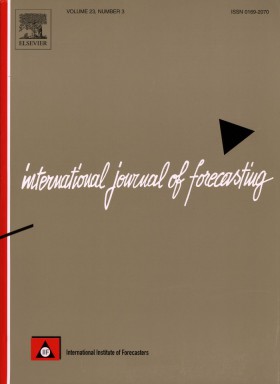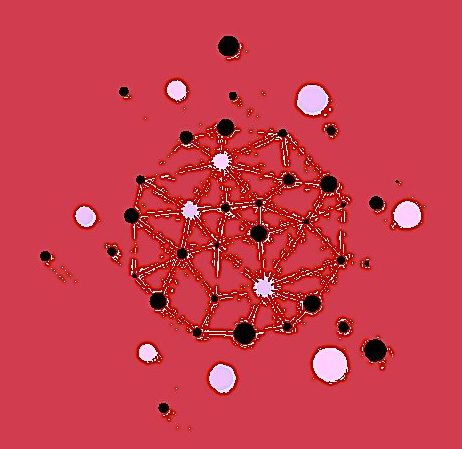
The International Journal of Forecasting (IJF) receives a large number of submissions every year (an average of more than 900 per year over the last few years). Those manuscripts are processed by our editorial board and dedicated reviewers, in order to eventually select the very best papers to be published by the journal, while providing the authors with critical, yet supportive and constructive, feedback for their papers to bring the best of the original ideas to our readers. The IJF strives to publish high-quality papers that covers excellent, topical and timely research, while having a commitment towards reproducibility of the results.
Out of all those papers that IJF publishes, we aim to put the spot light on these few papers that truly stand out. Therefore, every second year, we award a prize for the best paper published in the International Journal of Forecasting. The prize consists of US$1000 plus an engraved plaque. Besides this best paper award, we usually select 1-2 outstanding paper awards, to be seen as runner-up, in the sense that they do not get prize money, but still get the recognition for the excellent quality of the work they publish. The IJF Best Paper Award to be handed in 2025 covers the period 2022-2023 – we always allow for a delay after the publication period, since it gives the papers time to gain visibility, and for us all to reflect on their quality and relevance.
As the award should be handed out at the time of the International Symposium of Forecasting (ISF 2025) late June 2025 in Beijing, China, it is now time to go through the process of nominating and selecting those papers. The nomination process is fully open, and anyone may be able to nominate up to three papers. A condition though is that you cannot nominate a paper that you have co-authored yourself. Papers co-authored by one of the editors (Profs. Esther Ruiz, Dick van Dijk, Norman Swanson, Fotios Petropoulos, George Kapetanios, Amir Atiya and Pierre Pinson) are not eligible for the prize. All nominated papers are to be accompanied by a short statement (up to 200 words) from the nominator, explaining why the paper deserves an award.
Based on the nominations, the editors will short-list five top papers, and a vote will be organized for the team of senior editors of the IJF to rank the nominated papers and select the award winners.
All papers published in the period 2022-2023 are eligible. These include:
- IJF vol. 38, no. 1: https://www.sciencedirect.com/journal/international-journal-of-forecasting/vol/38/issue/1
- IJF vol. 38, no. 2: https://www.sciencedirect.com/journal/international-journal-of-forecasting/vol/38/issue/2
- IJF vol. 38, no. 3: https://www.sciencedirect.com/journal/international-journal-of-forecasting/vol/38/issue/3
- IJF vol. 38, no. 4: https://www.sciencedirect.com/journal/international-journal-of-forecasting/vol/38/issue/4
- IJF vol. 39, no. 1: https://www.sciencedirect.com/journal/international-journal-of-forecasting/vol/39/issue/1
- IJF vol. 39, no. 2: https://www.sciencedirect.com/journal/international-journal-of-forecasting/vol/39/issue/2
- IJF vol. 39, no. 3: https://www.sciencedirect.com/journal/international-journal-of-forecasting/vol/39/issue/3
- IJF vol. 39, no. 4: https://www.sciencedirect.com/journal/international-journal-of-forecasting/vol/39/issue/4
Nominations should be sent to Prof. Pierre Pinson (p.pinson@imperial.ac.uk), Editor-in-Chief for the International Journal of Forecasting, by 15 May 2025.
